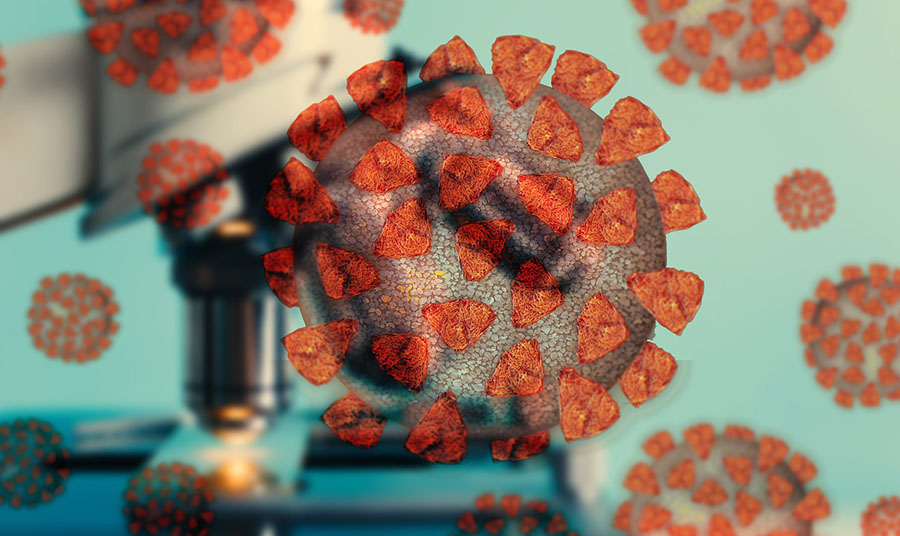The Life Sciences Report: ROTH held its 28th Annual Growth Stock Conference in mid-March. Was it attended well? How did it go?
Joseph Pantginis: It was very successful. More than 500 companies presented, and it drew a lot of different types of investors to beautiful Dana Point in southern California. The conference is focused on emerging growth companies, but we had some larger-cap companies present as well. It was quite successful, especially given the market volatility.
TLSR: You follow leading-edge biotechnology companies, and talk to buyside people every day. What are buysiders thinking about now? What are their concerns?
"The interim data from the Phase 1a/1b studies of Supinoxin and RX-3117 will really increase the visibility for Rexahn Pharmaceuticals Inc. this year."
JP: Over the last six months especially, a lot of focus has been on the extreme volatility, especially to the downside, in the biotech markets. There has been a flight from speculative, small- to mid-cap biotech names. Some of the larger ones have suffered as well, and when you look at the biotech indices, whether it's the SPDR S&P Biotech ETF (XBI:NYSE.Arca) or the NASDAQ Biotechnology (NBI:NASDAQ) index, they're still down quite significantly year to date, and down even further over the last year. I think there has been continuing trepidation with regard to the continuing volatility in these markets. One of the key things that has been extremely frustrating, both for us and on the buyside, is that many stocks have not gone up on good news.
There is a lot of agreement that stocks are certainly oversold, but that is quickly followed by the comment that there is still a lot of trepidation as to where the bottom might be, in order for funds to choose their entry points. Again, that leads to increased volatility, in our belief.
TLSR: It sounds to me like the generalists have not yet come back into biotech stocks. Did I read your comments correctly?
JP: I think that's a fair assessment. When you have such a speculative arena, there's always a flight to "safer" stocks, but then there's the joke about whether there are any safer sectors or safer stocks in this particular environment. There has been a bit of avoidance in getting the generalists back into this market right now, and that is due to the continuing volatility.
TLSR: Is it the generalists who actually drive the shares?
JP: I think seeing a broader investor base always helps, yes. The typical, very strong healthcare funds take large core positions in names and then stick with those names, so there is not necessarily a lot of trading in that group to drive the stocks. When you see interest from a broader investor base, that does help the particular biotech names.
TLSR: In a recent note, you made a brief comment about trepidation regarding the upcoming presidential and congressional elections. Is that preventing investors from jumping back into biotech right now?
JP: During any election cycle for the presidency there is a general level of nervousness, with people waiting to see which party is going to get in. I would say there is increased nervousness this year, with this election. Speaking generally, there is the view in the investment community that if Hillary Clinton becomes the nominee and is elected to the presidency, that might not be a positive for the pharmaceutical and drug discovery industry because of all the conversations and tweets she's made with regard to drug pricing. There's trepidation around that on investor fronts.
TLSR: Could we talk about some stocks, please?
JP: I have Rexahn Pharmaceuticals Inc. (RNN:NYSE.MKT) rated Buy. It has three interesting drugs right now. Supinoxin (RX-5902), a phosphorylated p68 inhibitor, is in Phase 1 for solid tumors. There's RX-3117 (fluorocyclopentenylcytosine), which I might call a "better" gemcitabine, also in Phase 1 for, potentially, a broad spectrum of oncology indications. There is also Archexin (RX-0201), an Akt1 antisense oligonucleotide inhibitor, which is in Phase 1b/2a for metastatic renal cell carcinoma.
"What has been extremely frustrating is that many stocks have not gone up on good news."
Over the last six months or so, the company has started to generate some clinical data, and this is bolstered by what I consider to be solid preclinical data sets with regard to the efficacy of the molecules in very difficult cell line and animals models.
We're looking to get interim data, maybe in H2/16, from both Supinoxin and RX-3117. These are randomized, well-designed studies, but very early stage. The interim data will be key drivers, I think. The investment community wants to see more clinical responses from these drugs, even though we already have positive anecdotal data from the earlier Phase 1 safety studies.
TLSR: Archexin used to be thought of as the lead candidate in the company's pipeline. It's in a later stage of clinical development. Your comments suggest the other two drugs, RX-3117 and Supinoxin, are the value drivers for this stock now. Would that be right?
JP: Right now, I would say they are the value drivers because of the investment the company is making with regard to the four well-designed clinical studies. Archexin is, in essence, on autopilot. You have some initial data, and it has had some earlier Phase 2 data as well, for renal cell cancer. We're going to get the Phase 2 data readouts for Archexin in 2017. From just a driver standpoint, the interim data from the Phase 1a/1b studies of Supinoxin and RX-3117 will really increase the visibility for Rexahn this year.
TLSR: Joe, back on Feb. 26, you lowered your target price on Rexahn from $4/share to $1.75/share. My impression is that this is not really a downgrade, but rather a response to the much lower valuation this stock has incurred over the past year. Is that right?
JP: Yes. There was nothing negative about the fundamental thesis, and I think that's important to point out. The lead driver for the price target decrease was that we made adjustments on the share counts based on recent equity raises. It was just taking into account the dilution of equity due to those raises.
TLSR: Another name?
JP: Immune Pharmaceuticals Inc. (IMNP:NASDAQ) is in the same category from the micro-cap standpoint, since clinical data are going to drive this company.
Immune Pharmaceuticals has several products in its pipeline, but the lead driver, in my belief, is bertilimumab, a fully human antibody that targets a protein called eotaxin-1, which plays an important role in inflammation. Looking at the history of this target—and what's so interesting here—is that just a few years ago eotaxin-1 was considered to be a biomarker of inflammation, or levels of inflammation. It turns out to be a therapeutic target as well, and the more severe the inflammation, depending on the disease indication, the more eotaxin-1 is present. This is positive for bertilimumab because it basically gives more target for the drug.
"There has been a bit of avoidance in getting the generalists back into this market due to the continuing volatility."
The company is looking at three different indications right now, one of which I think will also have the potential for significantly increased visibility: atopic dermatitis. The presence of eotaxin-1 is part of that disorder. The increasing visibility on atopic dermatitis is because of the recent success of Regeneron Pharmaceuticals Inc. (REGN:NASDAQ) antibody dupilumab. I also cover Regeneron, and we have it rated a Buy. Dupilumab has breakthrough drug designation from the FDA, and it just demonstrated very nice, positive Phase 3 data. Regeneron will be filing for approval in Q3/16. The increase in visibility from Regeneron and dupilumab on atopic dermatitis could have a positive translational effect on Immune Pharmaceuticals' bertilimumab.
Immune Pharmaceuticals' other lead indications, also inflammatory diseases, are an orphan skin disorder called bullous pemphigoid, and a much larger indication in ulcerative colitis. Both of these studies are ongoing. We could see data by the end of 2016, and that's what it will take to attract investors—beginning with the healthcare-focused investors. In this sense, waiting for data, Immune Pharmaceuticals fits into the same category as Rexahn. But again, we do have strong preclinical model data.
TLSR: Immune Pharmaceuticals also has an immuno-oncology drug, Ceplene (histamine dihydrochloride), approved in the European Union and in Israel. It has the active Phase 2 program in inflammatory disease that you just described. It also has analyst coverage from good investment banks. Can you tell me why this company has a ~$15M market cap?
JP: That's a good question. There is not a lot of U.S. visibility on Immune Pharmaceuticals, and that's because this is a foreign-based company. It's an Israeli biotech. Only over the last six months to a year has it brought its operations solidly to the U.S., here in New York City. Again, as we've discussed, many investors have gone away from biotech over the past year and have not yet returned—and on top of that, it is hard for a predominantly foreign-based micro-cap biotech company to get U.S. investor exposure. Unfortunately, these issues have impacted the stock. Data should be the driver.
TLSR: You have some names on your ROTH Focus List. Could you briefly tell me about them?
JP: One of my Focus Picks is TG Therapeutics Inc. (TGTX:NASDAQ). I'll give you the quick snapshot. TG has two lead drugs. One is a next-generation anti-CD20 antibody called TG-1101 (ublituximab). A competitor would be Genentech/Roche Holding AG's (RHHBY:OTCQX) Gazyva (obinutuzumab), the first drug approved by the FDA with breakthrough designation.
"There is the view that if Hillary Clinton is elected to the presidency, that might not be a positive for the pharmaceutical industry because of the comments she's made with regard to drug pricing."
TG Therapeutics has demonstrated monotherapy data with TG-1101, as well as combination data, and it is now in a large Phase 3 study under a special protocol assessment (SPA) with AbbVie Inc.'s (ABBV:NYSE) Imbruvica (ibrutinib), after showing very striking response rates in chronic lymphocytic leukemia (CLL) patients. The study is enrolling very well. We think we might see data next year.
TG's second lead product is a differentiated PI3K inhibitor, TGR-1202, for hematologic cancers. We are looking at it from both an efficacy and safety perspective. From the safety standpoint, unlike other PI3K inhibitors, there have been no instances of ulcerative colitis. Liver toxicity has been held to an extreme minimum compared to the other PI3K inhibitors as well. If you look at Gilead Sciences Inc.'s (GILD:NASDAQ) idelalisib, there were some recent holds put on some of its studies based on toxicity.
TLSR: Your other Focus Pick?
JP: Aduro Biotech Inc. (ADRO:NASDAQ) is my other Focus Pick, and it has an immuno-oncology pipeline lead by its LADD technology, which utilizes a bacterium, Listeria mononcytogenes, as a therapeutic platform to enhance development of immune responses to particular tumor antigens. Aduro's lead product, CRS-207, has breakthrough designation for pancreatic cancer, and a randomized Phase 2 study should read out soon. We believe the Phase 2 will be positive based on the strength of the first randomized Phase 2, which was published in the Journal of Clinical Oncology. The company had a strong IPO in 2015, has a very strong pipeline and balance sheet, and has two large pharma partners in Janssen Pharmaceuticals Inc. (a subsidiary of Johnson & Johnson [JNJ:NYSE]) and Novartis AG (NVS:NYSE).
TLSR: Thanks so much, Joe.
Joseph Pantginis, Ph.D., is Head of Biotechnology Research and Senior Research Analyst at ROTH Capital Partners, which he joined in 2009. Prior to joining ROTH, Dr. Pantginis was a senior biotech analyst at Merriman Curhan Ford. Dr. Pantginis was also a senior biotechnology analyst at Canaccord Adams, focusing on the oncology, inflammation and infectious disease spaces. Prior to Canaccord Adams he was a biotech analyst at several firms, including JBHanauer & Co., First Albany Corp, Commerce Capital Markets and Ladenburg Thalmann & Co. Inc. Prior to his tenure on Wall Street, Dr. Pantginis served as an associate manager/scientist of Regeneron Pharmaceuticals' Retrovirus Core Facility. Dr. Pantginis received an M.B.A. in finance from Pace University; a Ph.D. in molecular genetics and an M.S. from Albert Einstein College of Medicine; and a B.S. from Fordham University.
Read what other experts are saying about:
Want to read more Life Sciences Report interviews like this? Sign up for our free e-newsletter, and you'll learn when new articles have been published. To see recent interviews with industry analysts and commentators, visit our Streetwise Interviews page.
DISCLOSURE:
1) Dr. George S. Mack conducted this interview for Streetwise Reports LLC, publisher of The Gold Report, The Energy Report and The Life Sciences Report, and provides services to Streetwise Reports as an independent contractor. He owns, or his family owns, shares of the following companies mentioned in this interview: None.
2) The following companies mentioned in the interview are sponsors of Streetwise Reports: Rexahn Pharmaceuticals Inc., Immune Pharmaceuticals Inc. The companies mentioned in this interview were not involved in any aspect of the interview preparation or post-interview editing so the expert could speak independently about the sector. The information provided above is for informational purposes only and is not a recommendation to buy or sell any security. Streetwise Reports does not accept stock in exchange for its services.
3) Dr. Joseph Pantginis: I own, or my family owns, shares of the following companies mentioned in this interview: None. I personally am, or my family is, paid by the following companies mentioned in this interview: None. My company has a financial relationship with the following companies mentioned in this interview: Rexahn Pharmaceuticals Inc., Immune Pharmaceuticals Inc., TG Therapeutics Inc. For additional disclosures click here. I was not paid by Streetwise Reports for participating in this interview. Comments and opinions expressed are my own comments and opinions. I determined and had final say over which companies would be included in the interview based on my research, understanding of the sector and interview theme. I had the opportunity to review the interview for accuracy as of the date of the interview and am responsible for the content of the interview.
4) Interviews are edited for clarity. Streetwise Reports does not make editorial comments or change experts' statements without their consent.
5) The interview does not constitute investment advice. Each reader is encouraged to consult with his or her individual financial professional and any action a reader takes as a result of information presented here is his or her own responsibility. By opening this page, each reader accepts and agrees to Streetwise Reports' terms of use and full legal disclaimer.
6) From time to time, Streetwise Reports LLC and its directors, officers, employees or members of their families, as well as persons interviewed for articles and interviews on the site, may have a long or short position in securities mentioned. Directors, officers, employees or members of their families are prohibited from making purchases and/or sales of those securities in the open market or otherwise during the up-to-four-week interval from the time of the interview until after it publishes.




























































